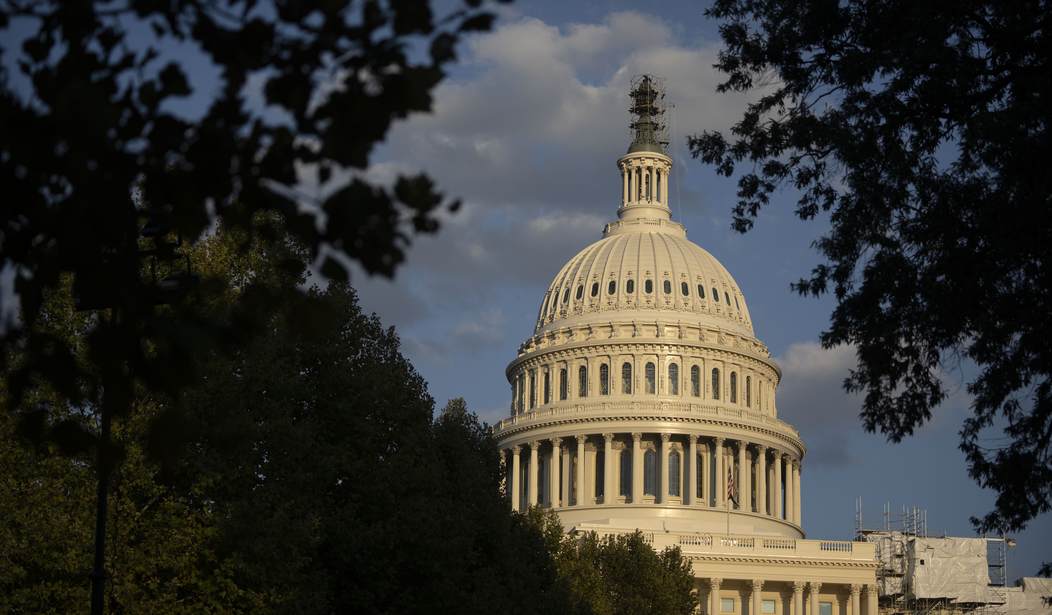By Joe Grogan
Perhaps the only rival to Congress’s undying love of spending money is its desire to regulate the pharmaceutical market. Unfortunately, the “fixes,” always seem to be more government regulation and control. The latest egregious policy proposal, known as “PBM delinking,” illustrates this point, regulating how an employer can reimburse its PBM for services and hampering freedom of contract.
The fact is, Congress should be encouraging innovative arrangements between PBMs, employers, and drug companies. Only flexibility in the market can deliver the reimbursement innovation that patients need to make pharmaceutical innovations affordable.
When a PBM negotiates with drug manufacturers for discounts in exchange for favorable coverage, these discounts are passed along to health plan sponsors to fund a variety of benefits for plan enrollees, including lower out-of-pocket costs and lower premiums. To encourage utilization and adherence, manufacturer rebates may reach higher thresholds in exchange for hitting certain sales metrics. PBMs typically receive a very small cut of the rebates secured for their clients, which include Federal and commercial payers, as payment for their services in negotiating with the drug companies. Opponents of this practice argue that this drives up list prices and costs patients more.
To address this, several committees in both chambers have decided that the best way to lower drug costs is to require PBMs be paid on a flat fee basis, thus banning the most effective means of ensuring accountability: paying for results. In every other sector of healthcare, Congress is happy to talk about how value-based payments will transform healthcare and save money. Policies that eliminate performance-based payment move the PBM market back towards a fee for service system, increasing costs across the healthcare system. Doctors, pharmacists, and even drug company sales reps are all paid based on performance because it incentivizes desired outcomes. Incentives matter as much in the PBM market as they do for any other industry, and rebate-based payment aligns PBM incentives with those of their payer-clients.
Recommended
Unfortunately, Congressional eagerness to destroy this contractual arrangement punishes patients and taxpayers far more than it would punish PBMs. In a post-delinking world, the PBM would be paid the same amount for each dispensation of the same type of drug, or a single flat fee for all their services, decreasing incentives to negotiate deep discounts. Rebates could decline by as much as 31 percent, and research suggests flat fee payment could hurt standalone PBMs more than their vertically integrated counterparts, furthering industry consolidation. Worse, employers would have fewer tools to deal with underperforming PBMs without performance-based pricing, their only recourse to switch PBMs with the expiration of a contract.
Additionally, delinking will impose costs on patients. A decrease in the size of negotiated rebates caused by the removal of incentives means plan premiums would increase by as much as $10 billion a year for seniors, causing patients to purchase less coverage and limit use of other services, with knock-on health effects increasing spending by as much as $600 million. Contrary to popular belief, list prices would probably increase in a model that bans pay-for-performance. Research suggests the rebates that drug companies currently pay would not be replaced by lower prices, resulting in the destruction of as much as $10 billion per year in Medicare drug savings because the intensity of negotiation would be greatly reduced.
Making it more difficult for PBMs to serve their customers has the optics of punishing PBMs, but ultimately won’t increase competition or accountability, and could frustrate desperately needed reimbursement innovation. New therapies with multimillion dollar price tags treating once uncurable rare diseases that cause untold suffering are making their way to market. PBM expertise in negotiating and managing financial flows uniquely qualifies them to negotiate and manage alternative payment arrangements for these drugs, such as warranty models or subscriptions. Policies targeting performance-based payments bolster the argument that the only actor who can competently negotiate drug prices is the Government.
Instead of codifying fee for service reimbursement in statute, Congress should advance policies spurring a robust market of private actors willing to negotiate fiercely amongst each other to drive pharmaceutical innovation and drive the deepest discounts for patients and the plans that cover them. Let’s hope Congress reverses course and abandons efforts to shackle markets with prohibitions and replace private sector negotiation with government price setting.
Joe Grogan is a visiting senior fellow at the USC Schaeffer Center and served as domestic policy adviser to former President Trump, 2019-20. He consults for health care companies including the PBM industry.

























Join the conversation as a VIP Member